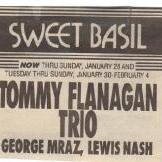What album turned G. Benson over to the dark side?
What album turned George Benson over to the dark side?
57 members have voted
-
Recently Browsing 0 members
- No registered users viewing this page.
_forumlogo.png.a607ef20a6e0c299ab2aa6443aa1f32e.png)

Recommended Posts
Join the conversation
You can post now and register later. If you have an account, sign in now to post with your account.